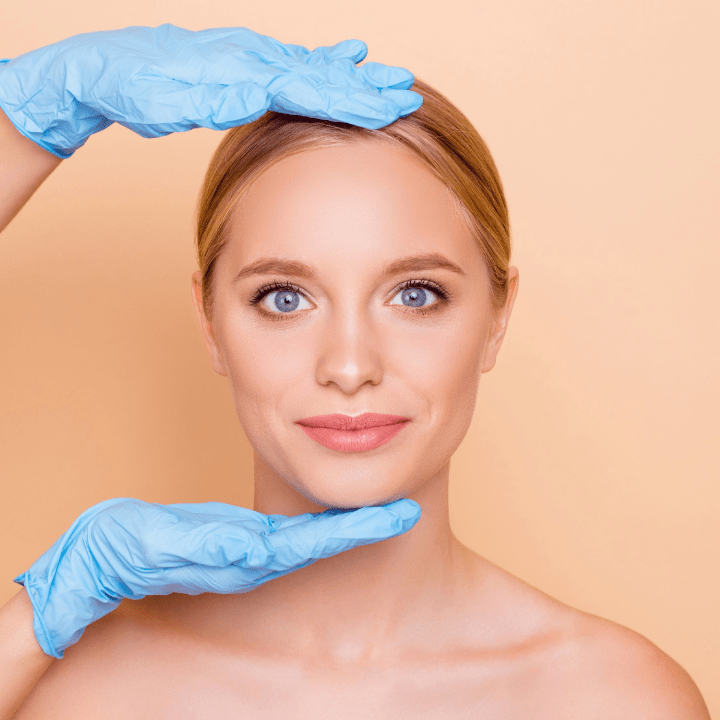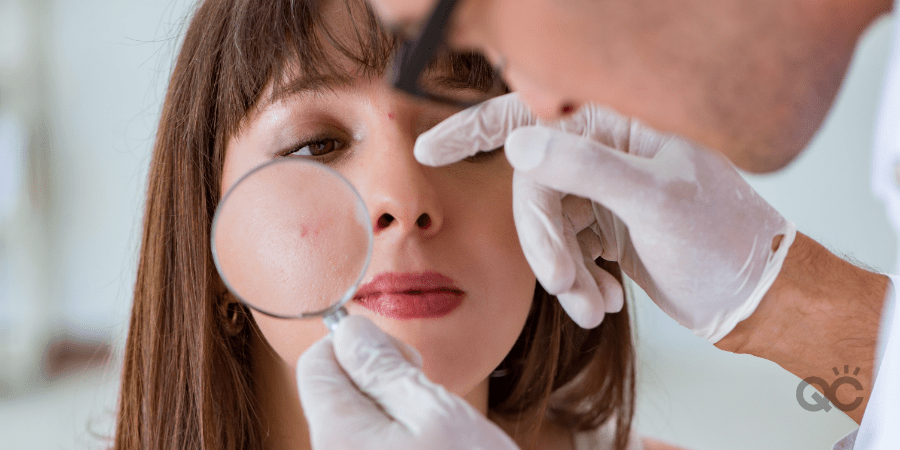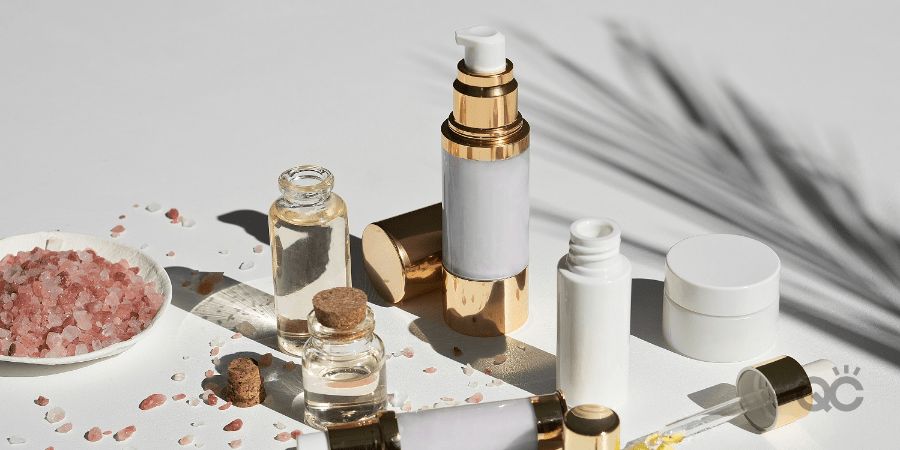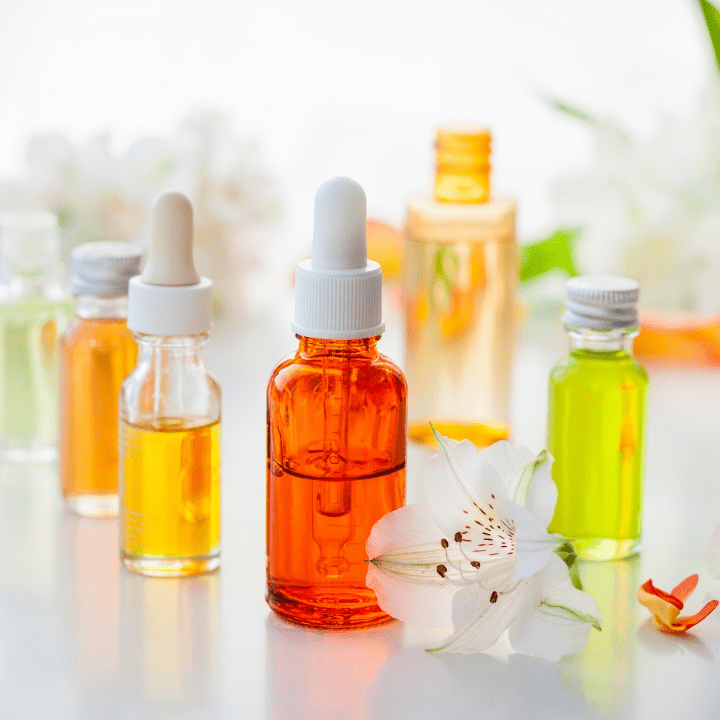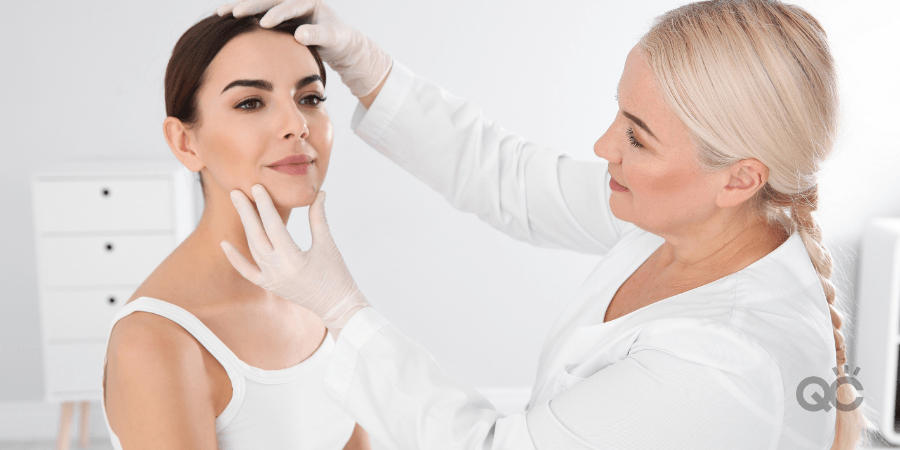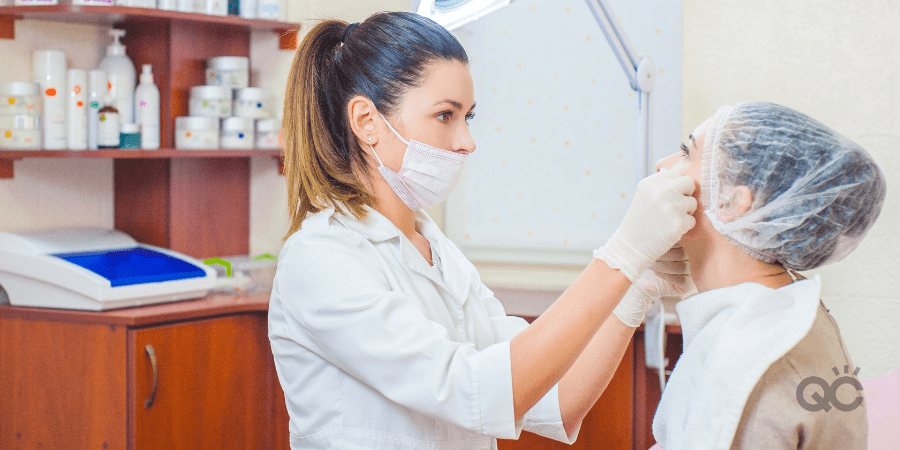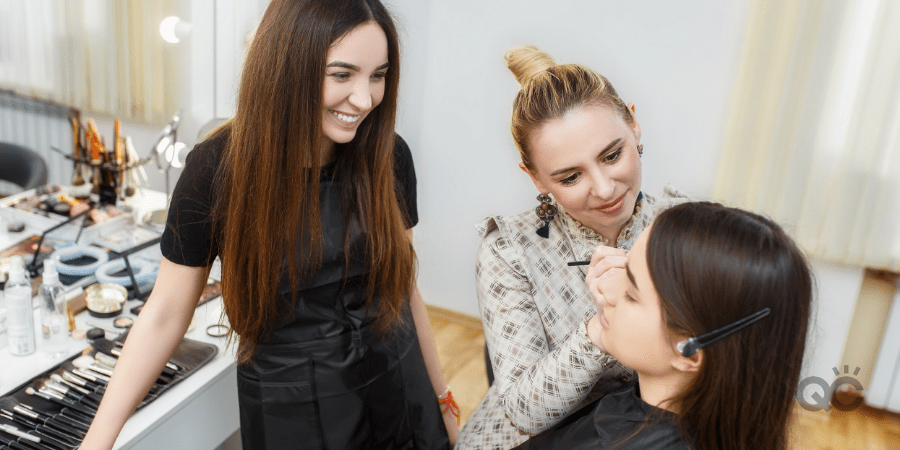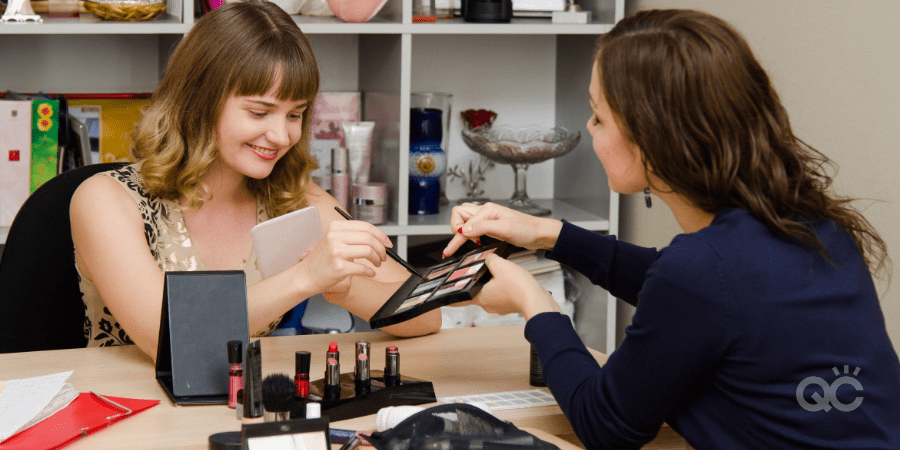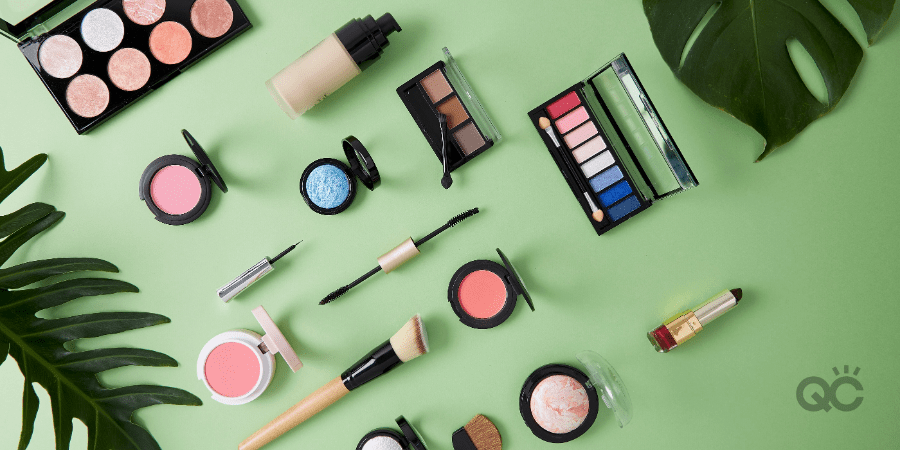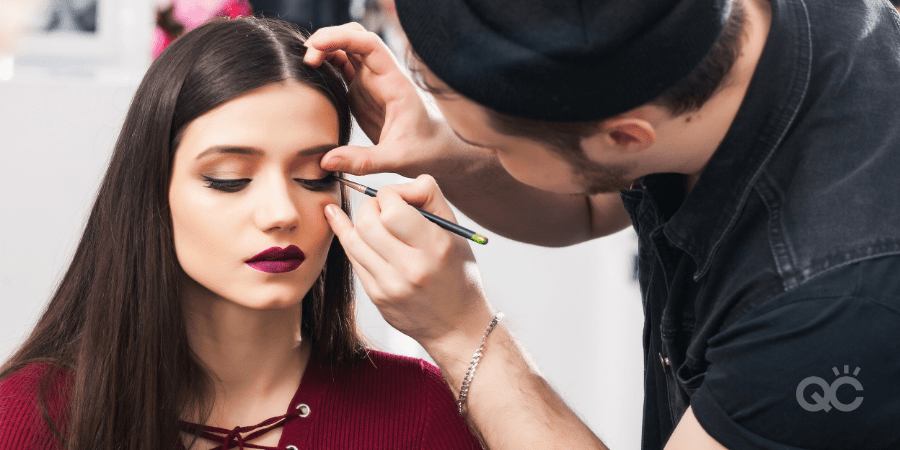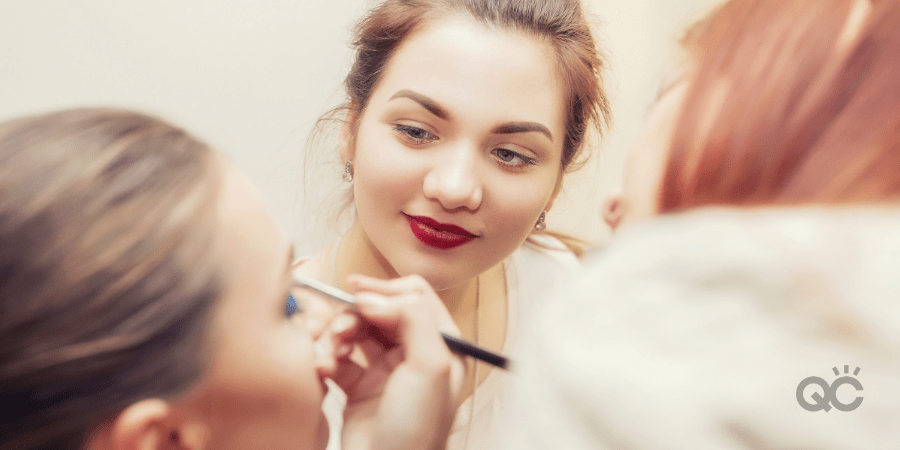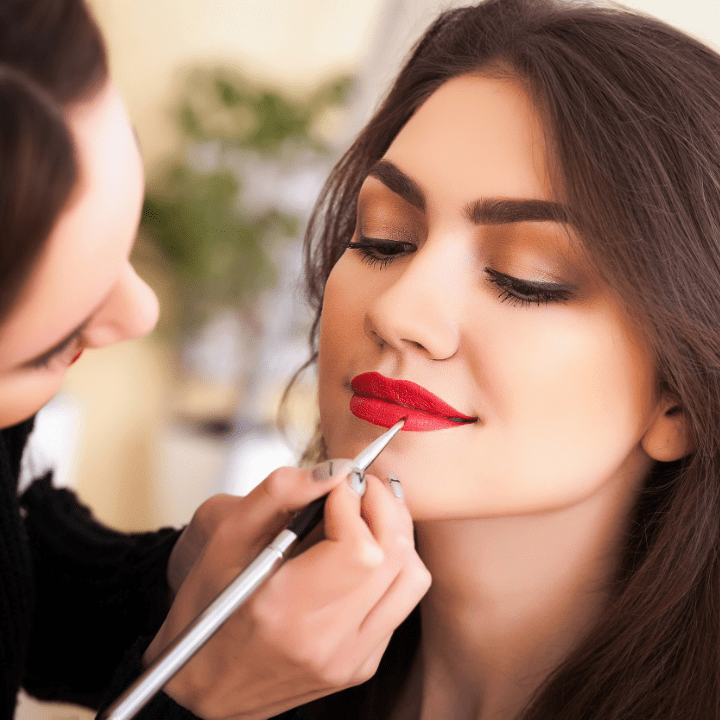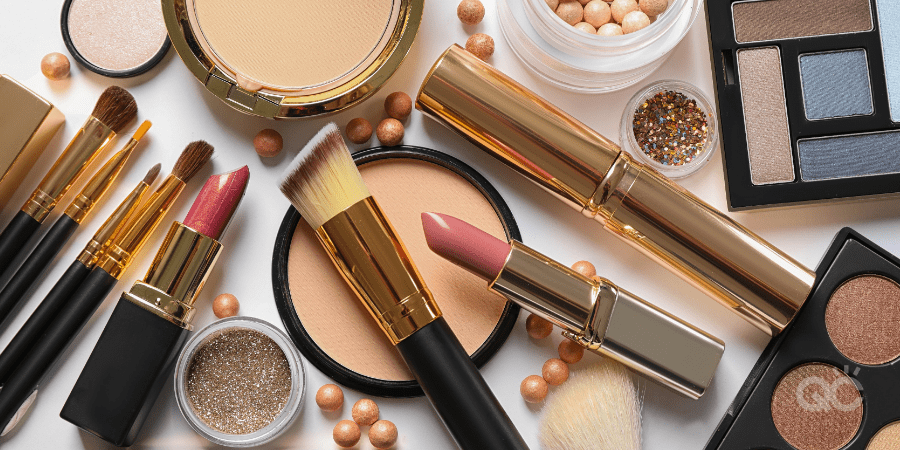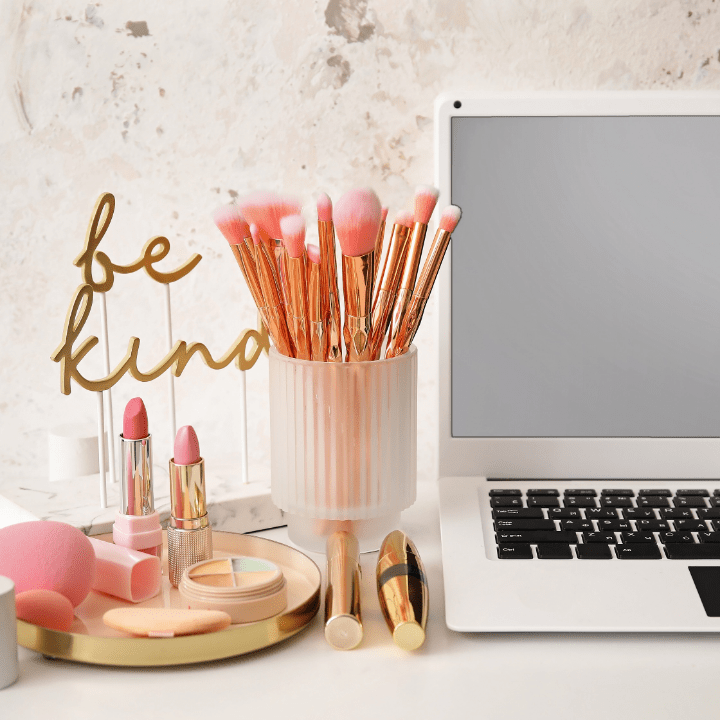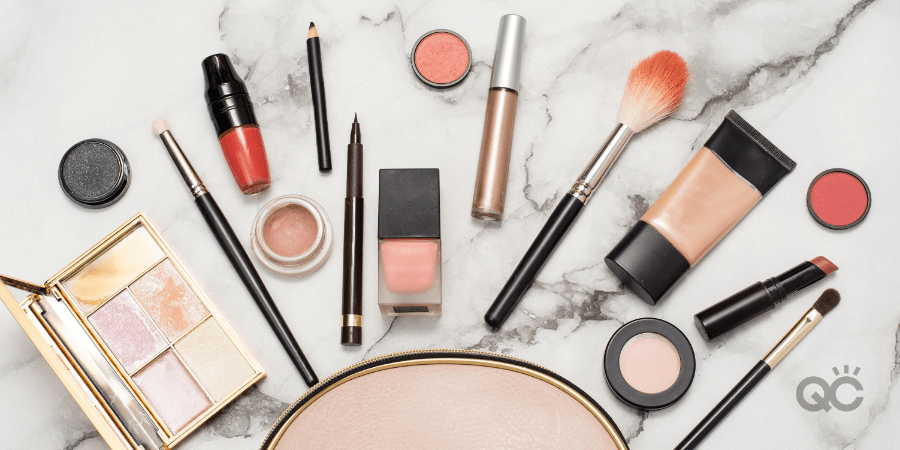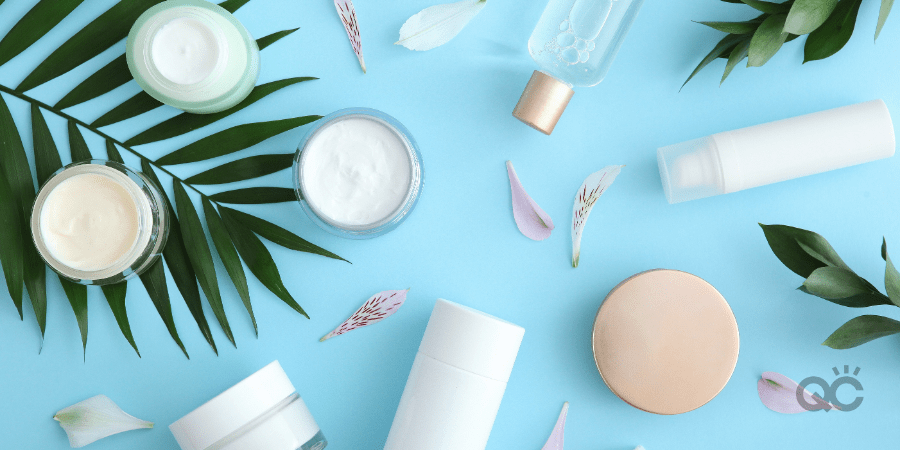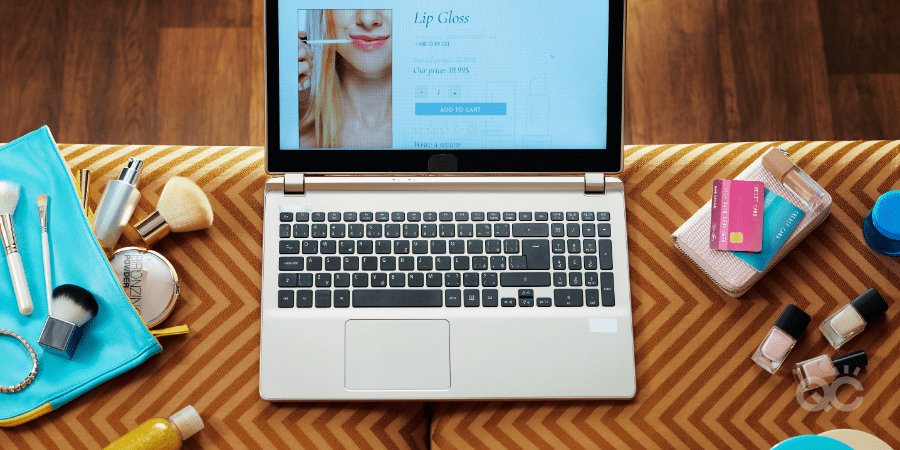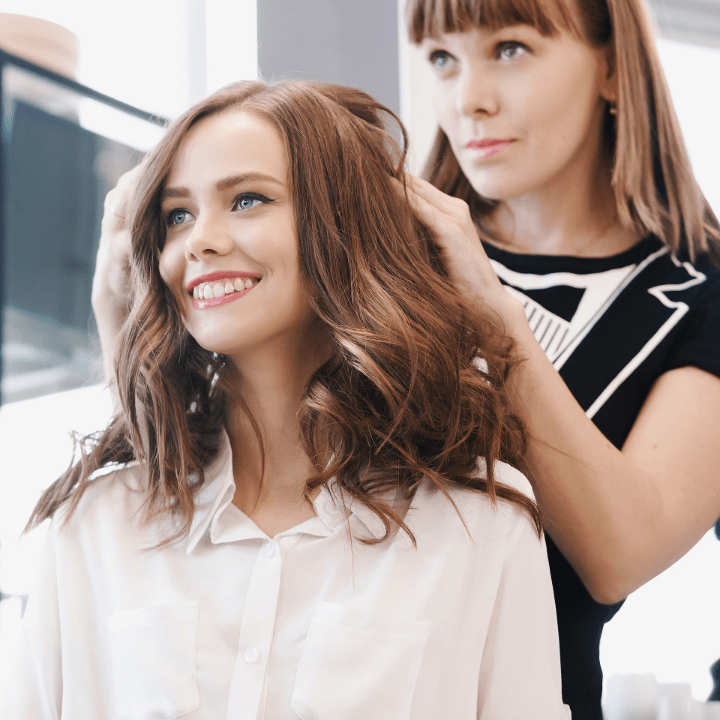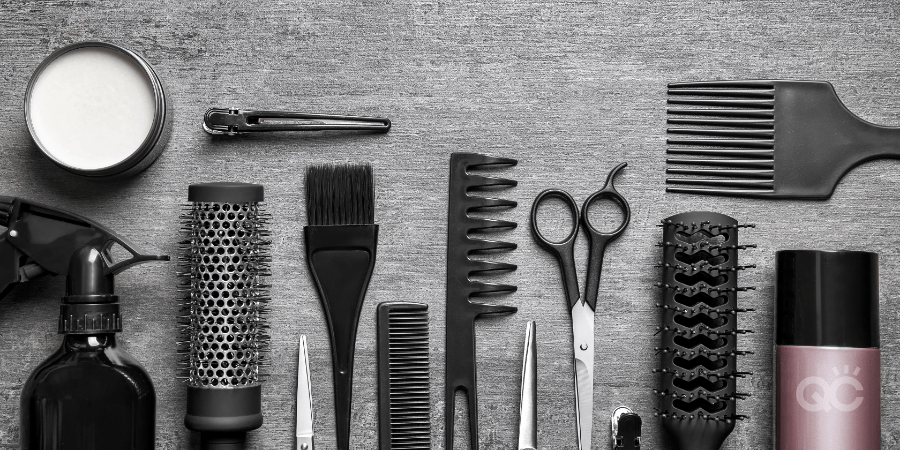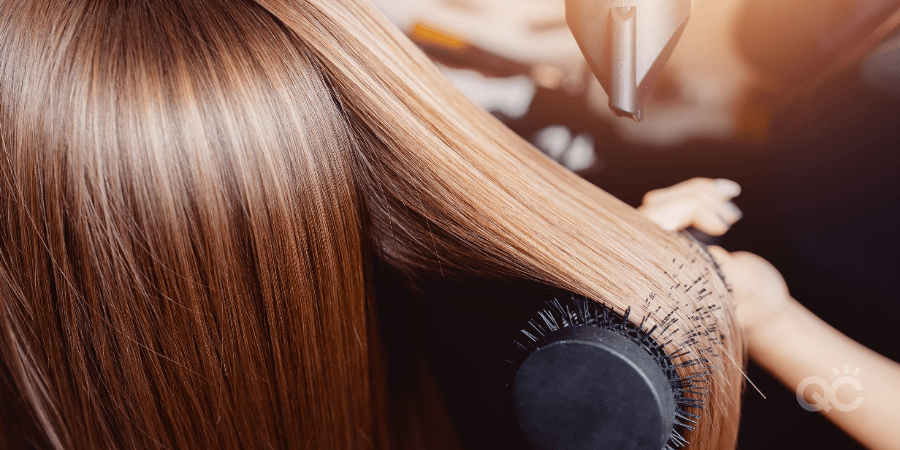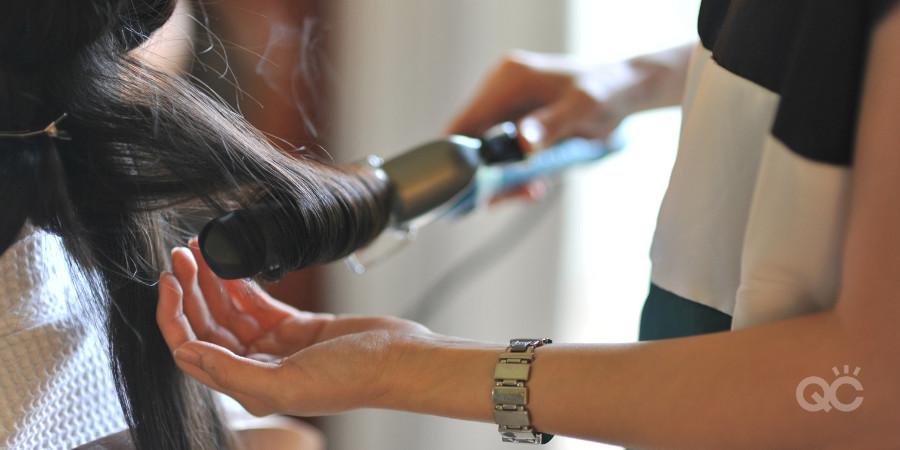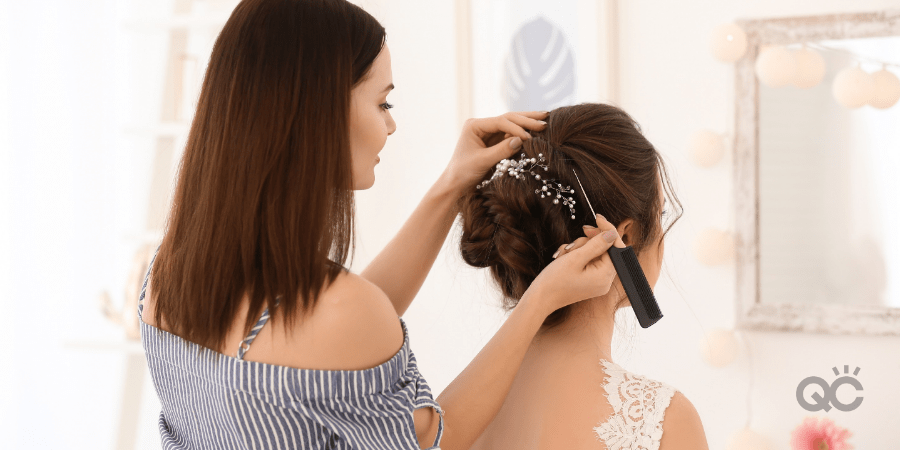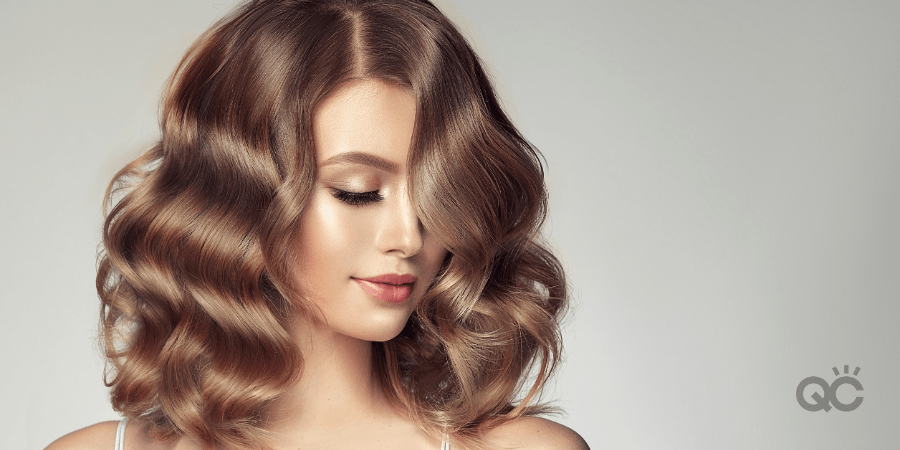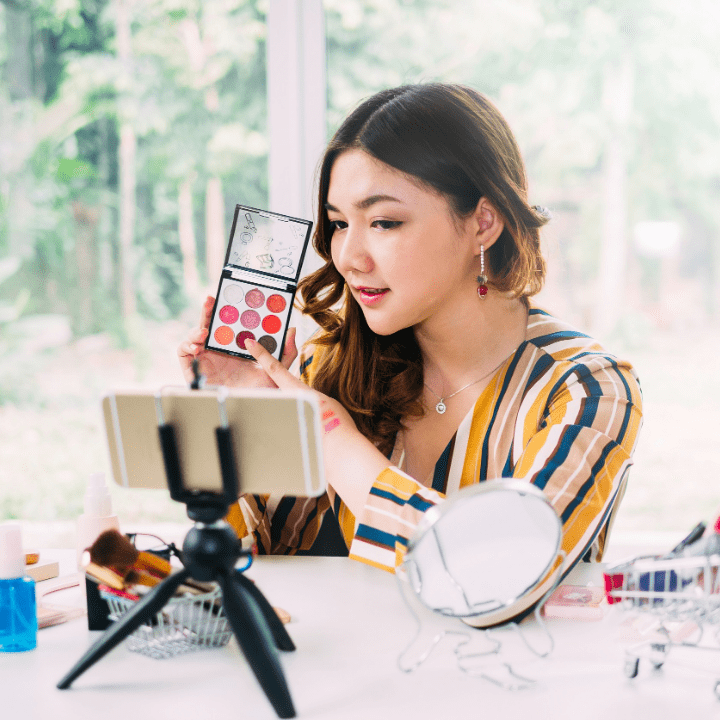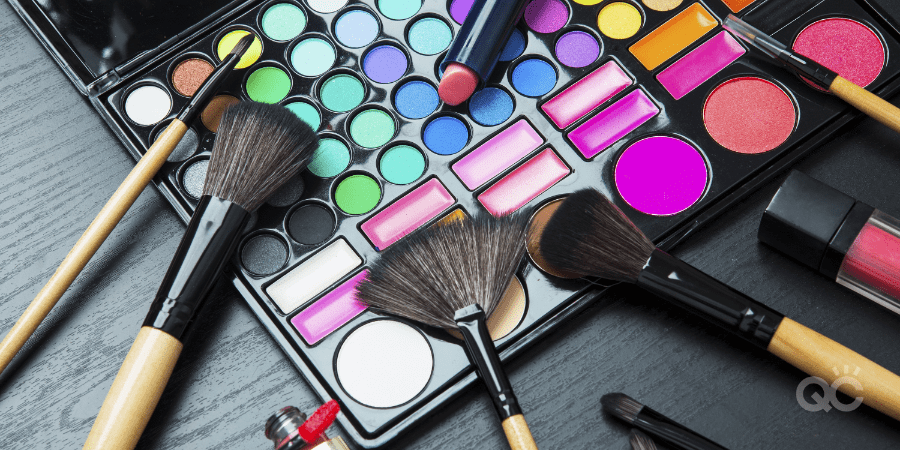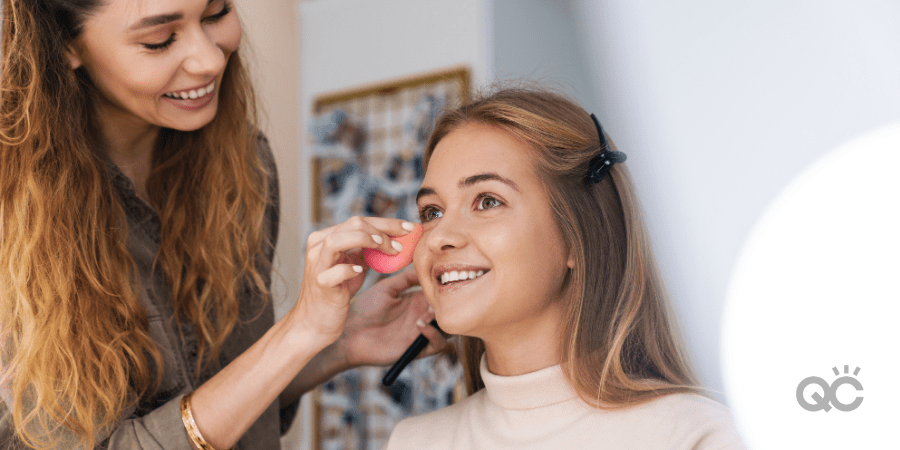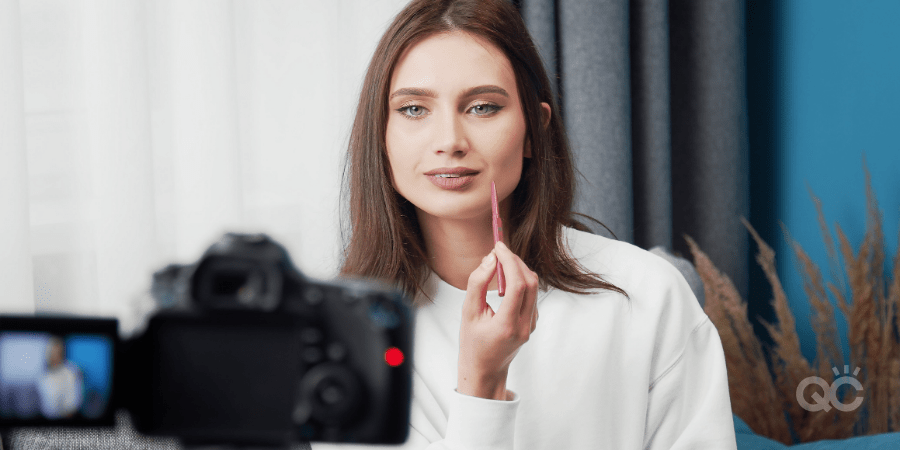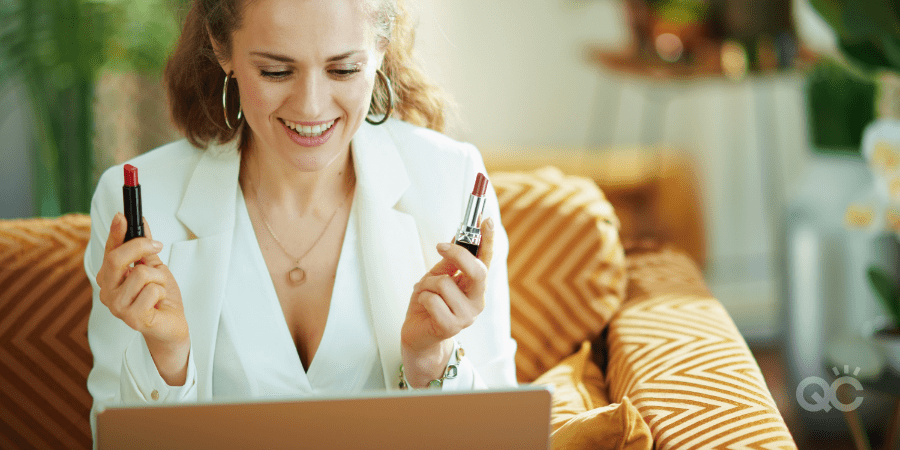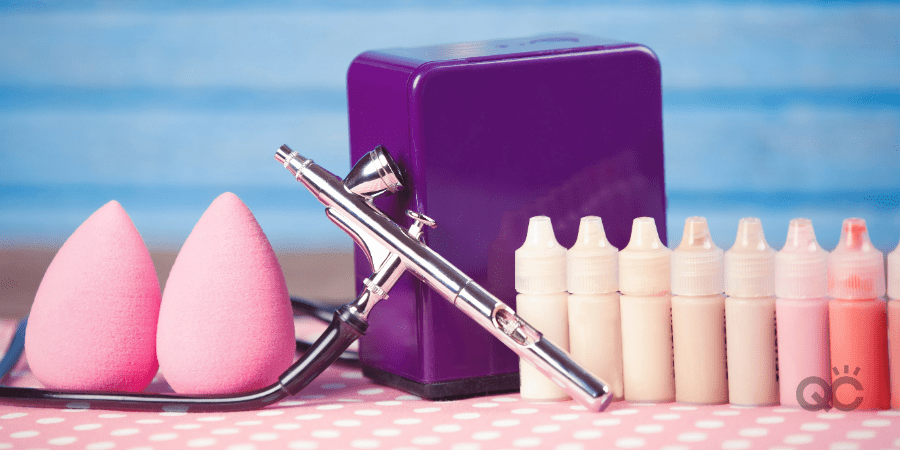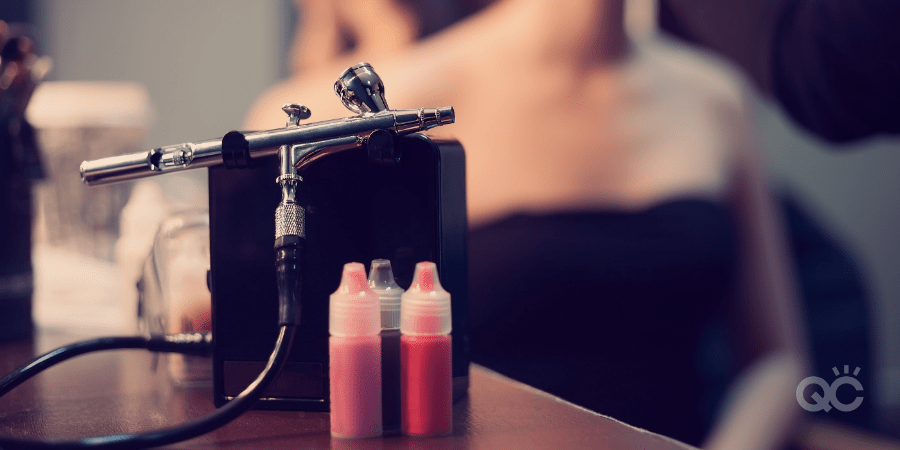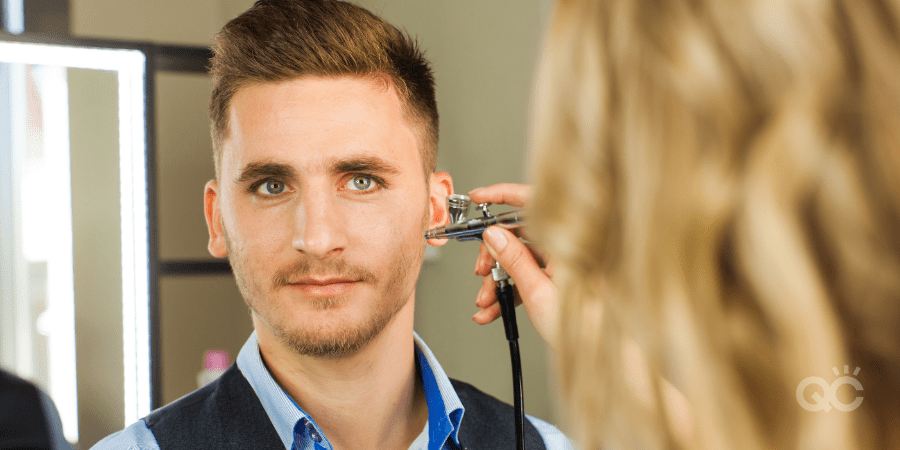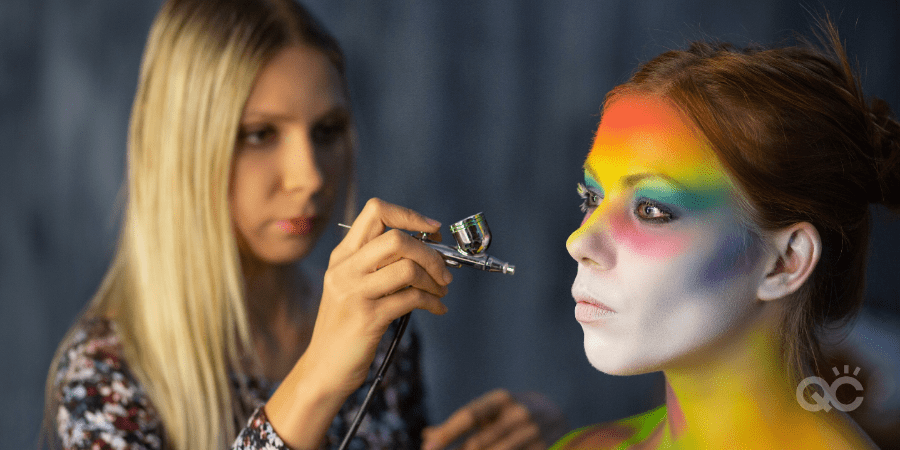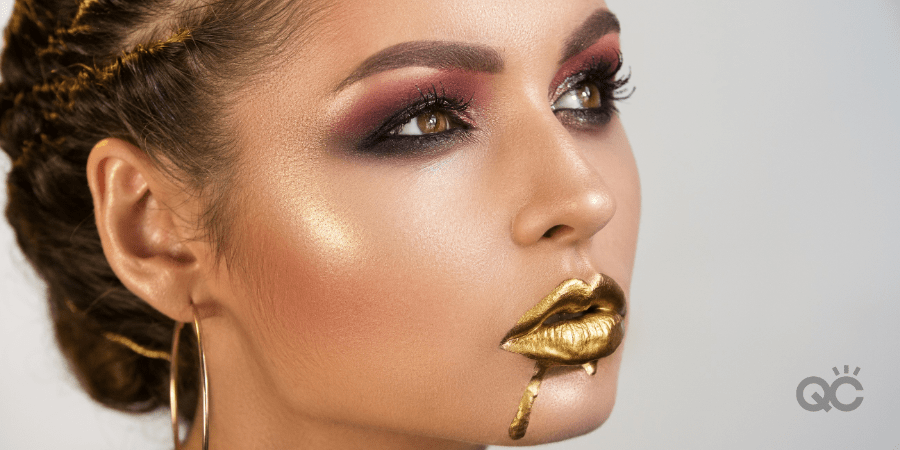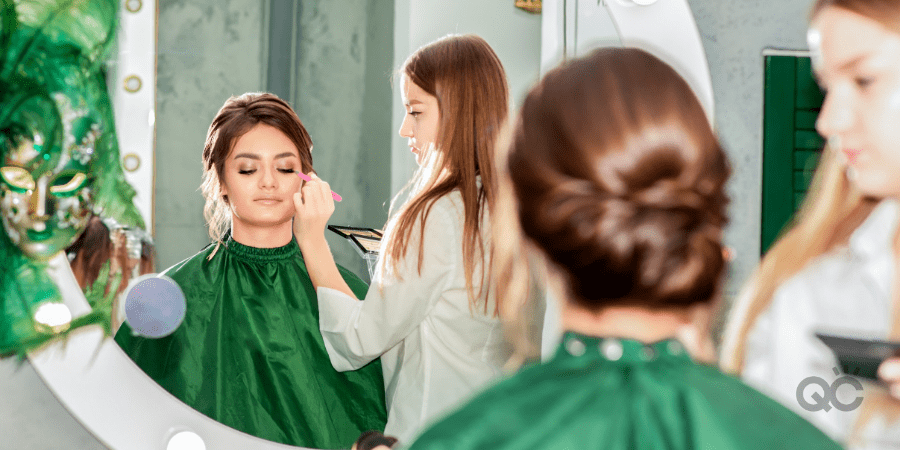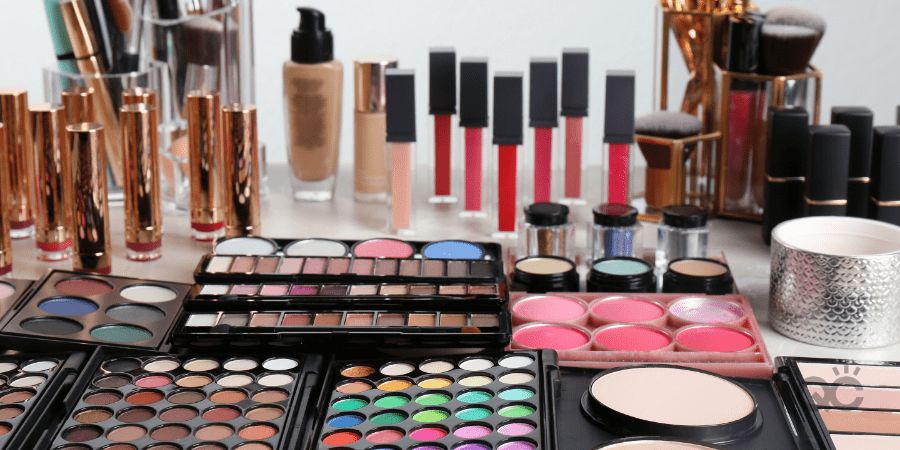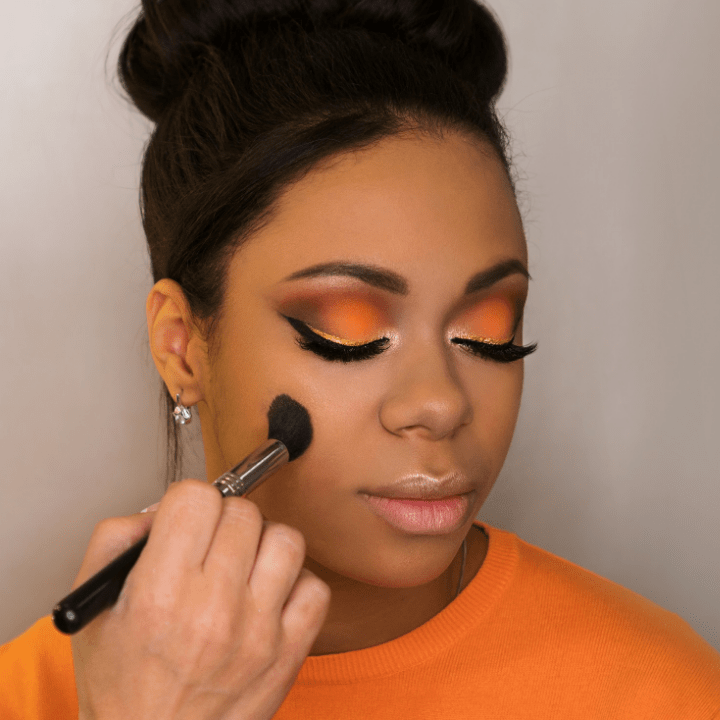
Gabrielle Rivera is a QC Makeup Academy graduate and professional makeup artist. To see more of her work, visit her Instagram here.
Starting any new business can be a scary step. But even though it won’t be quick (or easy), it’s still more than possible. After being in the beauty industry professionally for ten years, here are my personal top 3 tips on how YOU can start your very own makeup business!
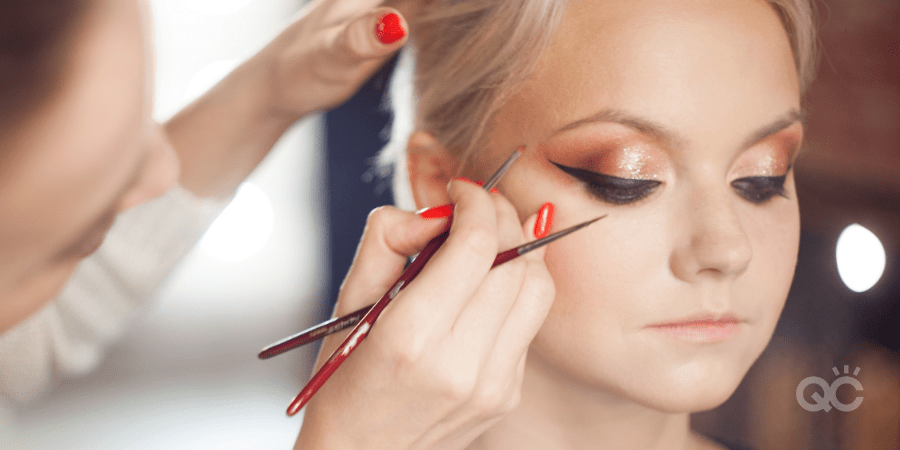
1. Branding
First and foremost, one of the most important things when starting your business is to come up with your brand. Make sure to take time for this part. Don’t rush it! This is vital to creating your business and overall image.
Your business name is something that I strongly believe should be professional. It should also be something that can last after common trends have gone and come. There are many artists who create social media handles that are on-trend or way too common. But this can make it difficult for you to stand out in a sea of similar artists.
For example, try and stray away from a name along the lines of, Makeup by [Insert your Name]. There are a million other MUAs with similar-sounding business names. If you follow suit, what’s going to make you special?
What you want for your brand is a name that will represent you, your style, and your unique vision.
Similarly, there are many times when an artist chooses a name based on a current popular trend. But what happens when that trend fades into memory? They wind up having to change their name! The result is typically that such MUAs wind up “re-branding” their business (and switching up their names) several times over the course of their career.
Although that isn’t necessarily terrible, I think that as a professional, you want to show consistency in both your brand and business. You don’t want to have to constantly re-brand yourself frequently. When you do this, you’re potentially making it difficult for your followers and/or clientele to keep track of your business or social media.
Worst case scenario? It can drive them away, and push them to find another makeup artist.
The bottom line: think carefully about your business’s name and image. You’re going to want it to properly represent you throughout the course of your career.
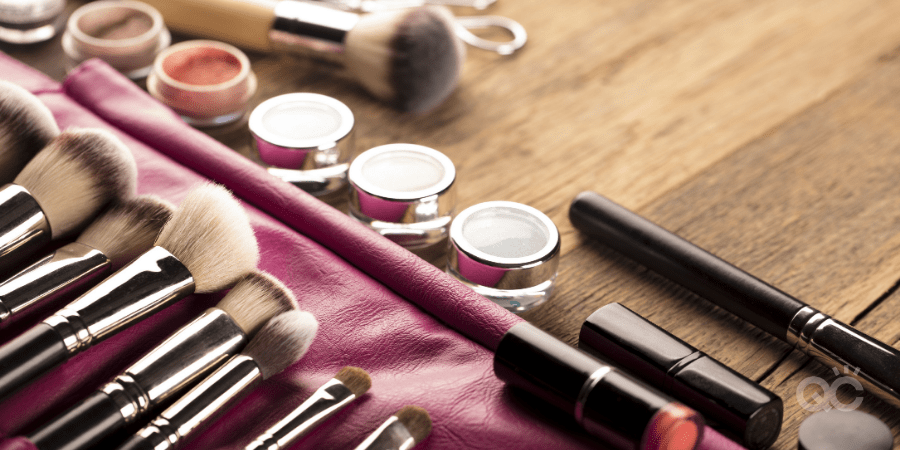
2. Research and Register
The next step I highly recommend is to research and register your business. When I launched my own makeup business, one of the most important things I learned was: “If you want to be seen as a professional, you have to be a professional.”
By “be a professional”, I mean that it’s imperative for you to research into legitimizing and legally securing your business and its name. If you skip this step, you could be setting yourself up for a LOT of complications down the road!
Yes, it can be a bit confusing at first, even a bit stressful – especially if you have no prior experience as an entrepreneur. But trust me, it’s so worth it in the long run. So, spend the time and money to make your business legal. By doing so, you’ll be putting yourself a step above other social media artists.
Not to mention, you’ll protecting yourself and your hard-earned business!
Using companies such as LegalZoom really helped me to get my business off the ground and running. They provided me with all the tools I needed to become a legal business. Not only are these resources it cost effective; they have agents that are there to assist you with questions, filing, and paperwork.
I can’t stress enough how important it is to follow through in registering your business. When you do this, you are protecting yourself in the event that there’s ever a dispute with a client (such as a lawsuit, for example). Becoming a legal business can save you and your reputation down the line!

3. Networking
Network, network, network!
As a new business, your best friend – and biggest ally – will be to network with other artists, photographers, and creators. Even if you aren’t sure where to start, social media can provide many avenues for you to collaborate with others.
Networking can be such a valuable asset to your business! When you network with other artists and creators, you’re opening yourself up to new clients, job opportunities, and connections. Most importantly, you learn countless new things, too.
I’ve worked with several photographers and makeup artists over the years. Through my collaborations with them, I’ve discovered countless tips for makeup, gaining clientele, expanding my brand, lighting, taking higher-quality photos, and even being a business owner.
Don’t let shyness stop you from branching out and connecting with others. There is so much you can learn from your peers that’ll help you better yourself as a professional!
